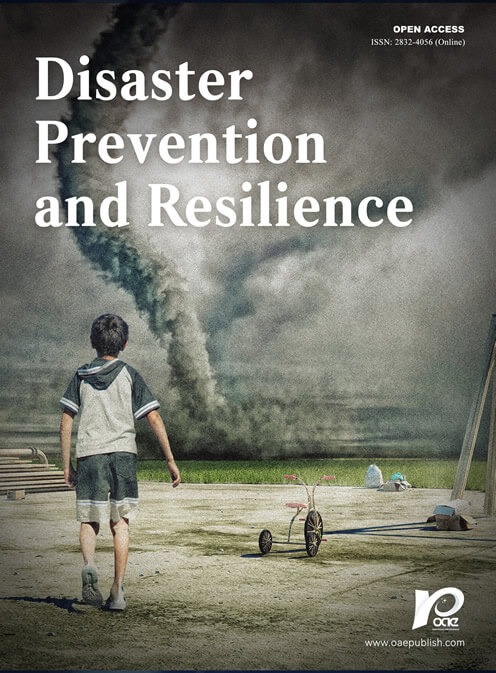REFERENCES
1. Colbert AJ, Soden BJ, Kirtman BP. The impact of natural and anthropogenic climate change on Western north pacific tropical cyclone tracks*. J Clim 2015;28:1806-23.
2. Fengjin X, Ziniu X. Characteristics of tropical cyclones in China and their impacts analysis. Nat Hazards 2010;54:827-37.
3. Emanuel K, Sundararajan R, Williams J. Hurricanes and global warming: results from downscaling IPCC AR4 simulations. Bull Amer Meteor Soc 2008;89:347-68.
4. Russell LR. Probability distributions for hurricane effects. J Wtrwy , Harb and Coast Engrg Div 1971;97:139-54.
5. Tryggvason BV, Davenport AG, Surry D. Predicting wind-induced response in hurricane zones. Journal of the Structural Division 1976;102:2333-50.
6. Batts ME, Simiu E, Russell LR. Hurricane wind speeds in the United States. J Struct Div 1980;106:2001-16.
7. Georgiou PN. . Designing wind speeds in cyclone-prone regions. London, Ontario, Canada, BLWT2: University of Western Ontario; 1985. p. 161-211.
8. Vickery PJ, Twisdale LA. Prediction of hurricane wind speeds in the United States. J Struct Eng 1995;121:1691-9.
9. Vickery PJ, Skerlj PF, Twisdale LA. Simulation of hurricane risk in the US using empirical track model. J Struct Eng 2000;126:1222-37.
10. Vickery PJ, Wadhera D, Twisdale LA, Lavelle FM. U.S. Hurricane wind speed risk and uncertainty. J Struct Eng 2009;135:301-20.
11. James MK, Mason LB. Synthetic tropical cyclone database. J Waterway, Port, Coastal, Ocean Eng 2005;131:181-92.
12. Rumpf J, Weindl H, Höppe P, Rauch E, Schmidt V. Stochastic modelling of tropical cyclone tracks. Math Meth Oper Res 2007;66:475-90.
13. Rumpf J, Weindl H, Höppe P, Rauch E, Schmidt V. Tropical cyclone hazard assessment using model-based track simulation. Nat Hazards 2009;48:383-98.
14. Emanuel K, Ravela S, Vivant E, Risi C. A statistical deterministic approach to hurricane risk assessment. Bull Amer Meteor Soc 2006;87:299-314.
15. Hall TM, Jewson S. Statistical modelling of North Atlantic tropical cyclone tracks. Tellus A 2007;59:486-98.
16. Yonekura E, Hall TM. A statistical model of tropical cyclone tracks in the Western north pacific with ENSO-dependent cyclogenesis. J Appl Meteorol Climatol 2011;50:1725-39.
17. Yasuda T, Mase H, Co LK, et al. Stochastic typhoon model and its application to future typhoon projection. Int Conf Coastal Eng 2011;1:16.
18. Li SH, Hong HP. Typhoon wind hazard estimation for China using an empirical track model. Nat Hazards 2016;82:1009-29.
19. Nakajo S, Mori N, Yasuda T, Mase H. Global stochastic tropical cyclone model based on principal component analysis and cluster analysis. J Appl Meteorol Climatol 2014;53:1547-77.
20. Chen Y, Duan Z. A statistical dynamics track model of tropical cyclones for assessing typhoon wind hazard in the coast of southeast China. Journal of Wind Engineering and Industrial Aerodynamics 2018;172:325-40.
21. Ying M, Zhang W, Yu H, et al. An overview of the China meteorological administration tropical cyclone database. J Atmos Ocean Technol 2014;31:287-301.
22. Kalnay E, Kanamitsu M, Kistler R, et al. The NCEP/NCAR 40-year reanalysis project. Bull Amer Meteor Soc 1996;77:437-71.
23. Folland CK, Parker DE. Correction of instrumental biases in historical sea surface temperature data. Q J Royal Met Soc 1995;121:319-67.
24. Ishii M, Shouji A, Sugimoto S, Matsumoto T. Objective analyses of sea-surface temperature and marine meteorological variables for the 20th century using ICOADS and the Kobe Collection. Int J Climatol 2005;25:865-79.
25. Sain SR, Baggerly KA, Scott DW. Cross-validation of multivariate densities. J Am Stat Assoc 2012;89:807-17.
26. Kurihara Y, Bender MA, Tuleya RE, et al. Improvements in the GFDL hurricane prediction system. Mon Weather Rev 1995;123:2791-801.
27. Bister M, Emanuel KA. Low frequency variability of tropical cyclone potential intensity 1. Interannual to interdecadal variability. J Geophys Res 2002;107:ACL 26-1.






